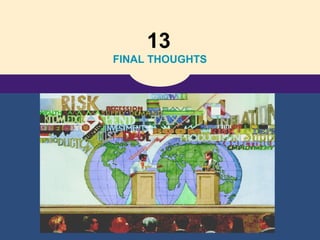This document discusses five debates around macroeconomic policy:
1) Whether monetary and fiscal policy should aim to stabilize the economy or not.
2) Whether monetary policy should follow rules or have discretion.
3) Whether the central bank should target zero inflation.
4) Whether the government should balance its budget or not.
5) Whether tax laws should encourage saving.
For each debate, the document outlines arguments on both sides.




































